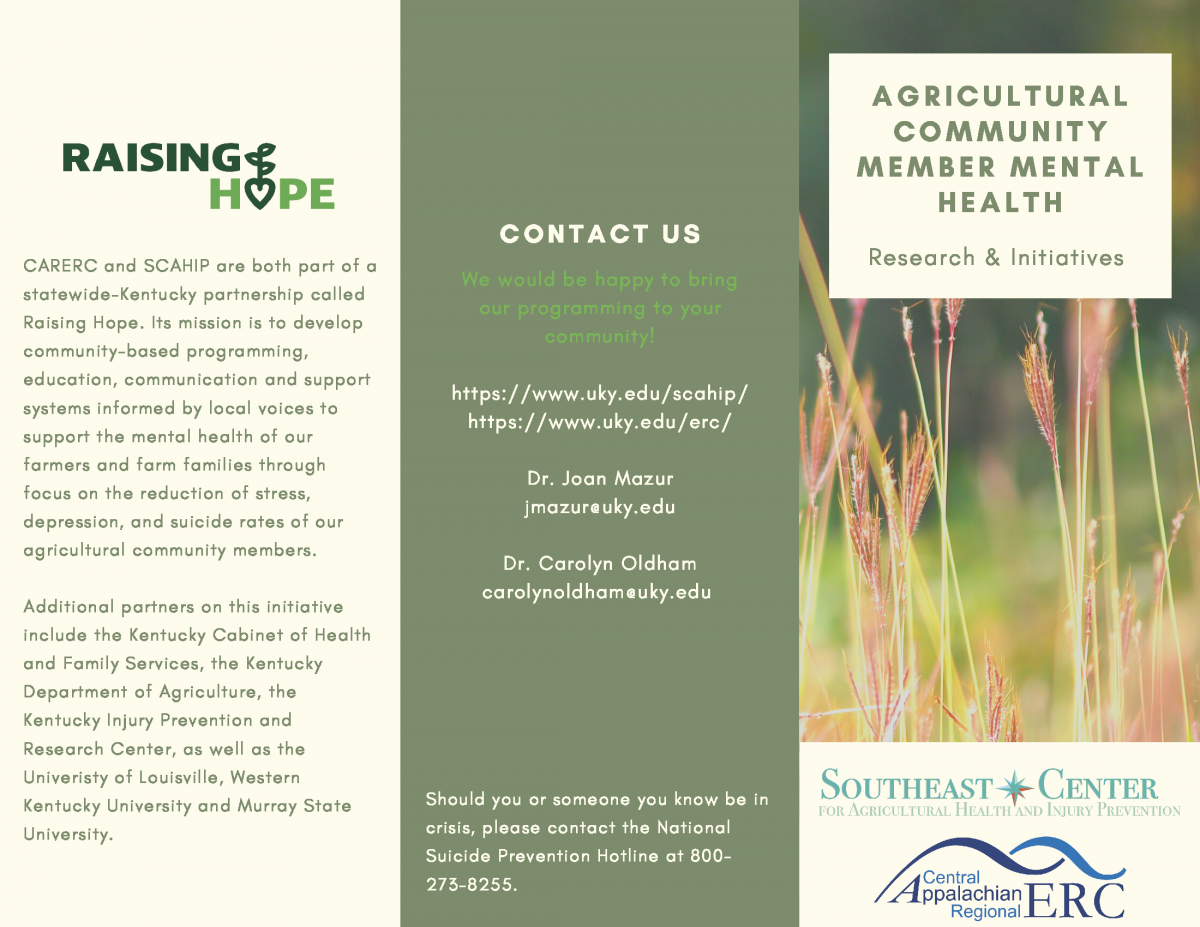Farmer Stress & Mental Health
 Although farming is often mythologized as a healthy and peaceful way of life, it is in fact one of the most dangerous occupations. Farms are considered among the most dangerous environments for farmers regardless of age (young children – seniors), gender or ethnicity. In reality, farmer and agricultural workers are faced with a great many circumstances over which they have little or no control—weather, crop blight, labor shortages, and the volatility of the market—which can lead to psychological distress. Additional factors that can contribute to stress include financial losses, chronic illness or pain, a sense of work-life imbalance, and/or the physical or social barriers to access mental health services. Significant psychological hazards are associated with agriculture (Gregoire, 2003), including high levels of stress (Booth & Lloyd, 2000), depression and anxiety (Eisner et al., 1998), and increased rates of suicide (Booth et al., 2000; Page & Fragar, 2002).
Although farming is often mythologized as a healthy and peaceful way of life, it is in fact one of the most dangerous occupations. Farms are considered among the most dangerous environments for farmers regardless of age (young children – seniors), gender or ethnicity. In reality, farmer and agricultural workers are faced with a great many circumstances over which they have little or no control—weather, crop blight, labor shortages, and the volatility of the market—which can lead to psychological distress. Additional factors that can contribute to stress include financial losses, chronic illness or pain, a sense of work-life imbalance, and/or the physical or social barriers to access mental health services. Significant psychological hazards are associated with agriculture (Gregoire, 2003), including high levels of stress (Booth & Lloyd, 2000), depression and anxiety (Eisner et al., 1998), and increased rates of suicide (Booth et al., 2000; Page & Fragar, 2002).

The Southeast Center is committed to the development of community-based support systems informed by local voices to improve farmer mental health and well-being. Select a menu item at left to read more.
SCAHIP Farm Stress & Mental Health Initiatives
Agricultural Community QPR for Farmers and Farm Families Training is a 1.5-hour program which pairs the Question-Persuade-Refer suicide prevention training with an introduction to agricultural community stressors, as well as discussion of barriers and cues to prompt mental healthcare-seeking behavior among farmers and farm families in rural communities.
Developed by agricultural community members, researchers, and health care practitioners across the state, the program has trained 57 trainers and more than 1000 participants as of April 2022. Funding for the program has been provided by the Centers, Agrisafe as part of the South-Farm & Ranch Stress Assistance Network program from USDA, and the General Fund appropriation to support the Kentucky Rural Mental Health and Suicide Prevention pilot program. Agrisafe has also shared the program nationally, training over 400 individuals in health care and education sectors as of April 2022.
Applied Suicide Intervention Skills Training(ASIST) is a 2-day program which teaches participants how to prevent suicide by recognizing signs, providing a skilled intervention, and developing a safety plan to keep someone alive.
The Centers are also developing a progressive web toolkit designed to improve agricultural community member mental well-being.

